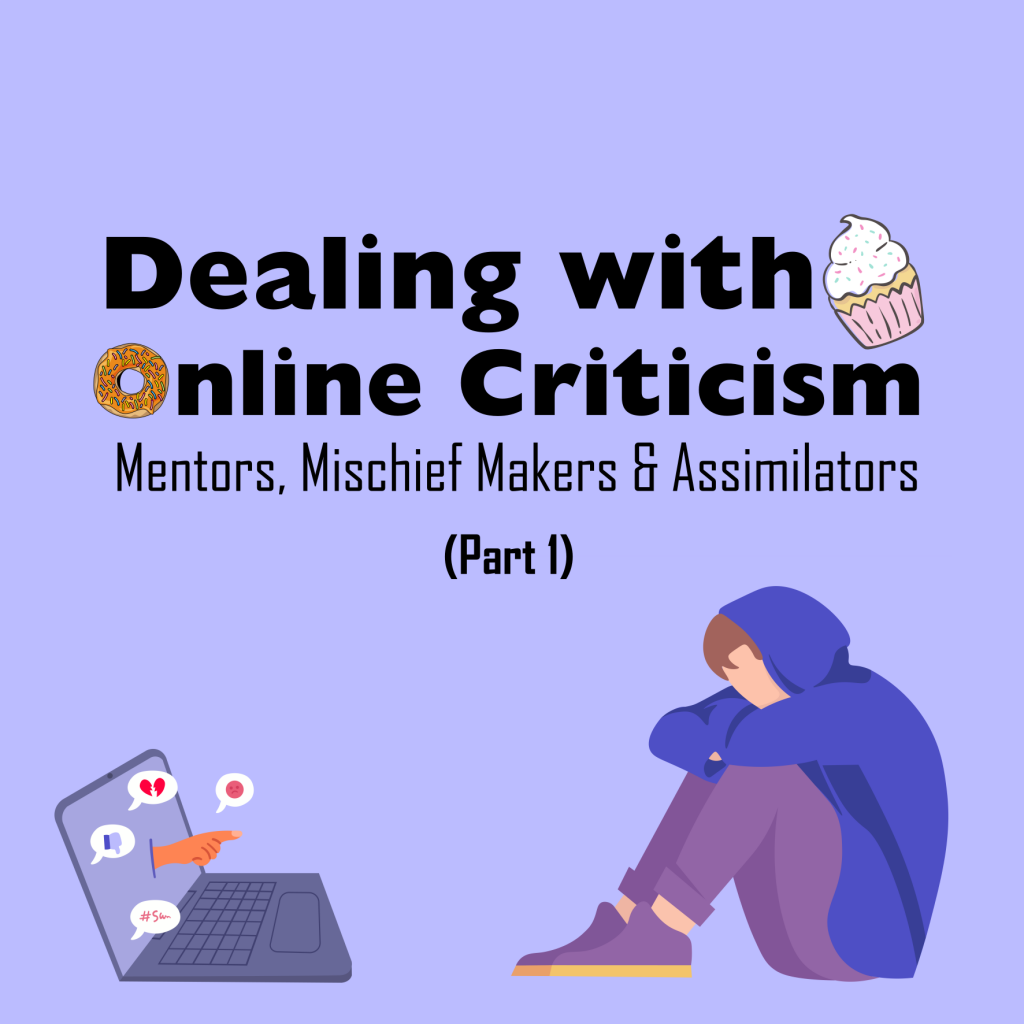
The internet can be both a blessing and a curse. On the one hand, it’s made our lives and means of communication easier. On the other hand, it’s given a voice to people that should be silent.
Yes, people, I’m talking about online critics. The internet has given them the means to attack others while maintaining an air of anonymity.
Imagine! A person can make you so angry that the brain strings together words to describe them that make no sense. They go by many names, generally a variation of body parts or inanimate objects. In my neck of the woods, we call them confectionery… “You know what bro! You’re acting like baked goods.” That’s not the actual word… I’m just substituting for comedic effect. 😉
Here’s what these “critics” don’t realize, life is an unfolding of who you are. It’s a process of self-discovery for all of us. We need to allow each other the freedom to try out new things. When you criticize someone, you prevent them from exploring their capabilities. You also prevent yourself from doing so because you’re also terrified of being criticized. And so we have a Mexican standoff with everyone afraid to do anything for fear of criticism.

So today, I’m going to share my experiences and how I handle online criticism. This is my way of handling it, you should check out other people’s opinions and decide on what works best for you.
However, I need to point out first that not every person that criticizes your work is your enemy. Let’s look at three other types of critics before I tackle the toxic variety in part 2.
The Mentor
Now keep in mind that not all people who criticize are intending to hurt you. Some people are so good at what you’re trying to do that your effort may annoy them a little. The trick is to figure out if this person is a menace or a mentor.
You do that by checking out their social media profile. If this person is in the industry and knows their stuff, it should be evident. For example, I do a bit of video editing for some of my projects. I’m self-taught, I’m learning as I go along and use what I can afford. Is my work at a professional level? No. If a professional video editor sees my work and assumes I’m just being lazy, they might get annoyed and criticize me.
In these cases, you fill in the gaps in their understanding of your situation and limitations. Tell them that you’re still learning and that you would appreciate their help. If the person isn’t a jackass, you’ve just found a mentor.
Mischief makers
Sometimes, you’ll get the class clown that will jab you. Their criticism has a humorous/sarcastic element to it. Once again, look at their social media account. If there’s an excess of memes then you know that they probably don’t mean any harm and you shouldn’t be offended. I’ll give you an example, when I recorded, “What does the Bible say about Tattoos.” a guy commented the following: “You looks scared I bet he doesn’t know what his talking about.”
A quick scroll through his profile revealed that he’s a funny guy, a bit of a class clown. So I responded, to his comment and thanked him for his feedback. He responds with: “Nah bro I’m just pulling your legs 🤣🤣”
To be fair though, he did call me out because it took me a few minutes to get comfortable with the camera. See, when you’re speaking to a crowd, there’s kind of a sharing of energy that takes place between you and the audience. However, pretending that the camera, an inanimate object, is a person that you’re speaking to, takes some time to get used to and that’s what he picked up on. But as you can see, he didn’t mean harm. Once again, not everyone is your enemy.
The Assimilator
Assimilation is defined as the process of taking in and fully understanding information or ideas. When criticism comes from them, you take it and use it to make your content better. I’ll give you an example, “Passing it on” season 1 (2018) vs season 5 (2022) is very different. One particular criticism from assimilators was that we need to focus more on the pot instead of the cook. They are trying to learn the recipe and want to see exactly what each step looks like in the pot. Hence, we made adjustments based on their feedback. Assimilator’s comments can sometimes appear harsh but it isn’t malicious. Their feedback is very important to your growth.
So that’s part 1, we’ve discussed the mentors, mischief makers and assimilators, we’ll head on over to the bakery for part 2.